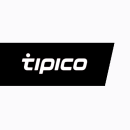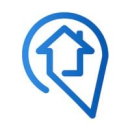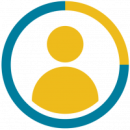“Being an engineer means staying curious,” said Portland Lindsey, principal software engineer at Boulder-based BAE Systems. “There is never a point where you know everything, and technology is constantly changing.
As Lindsey attests, in the game of cutting-edge technology, the goalpost is always moving. Engineers are constantly working to develop mastery over the existing tools in their toolkits and decide which of the countless new skills they should learn next to stay relevant. It’s a race that never ends.
“There is no point in your career where you will know everything you ever need to know,” said Lindsey.
Bluntly: it can be overwhelming.
That’s why Built In Colorado connected with Lindsey and four other engineers at local companies for their tips for staying relevant in the field of technology. Read on for more insight.
Tipico is a global provider of sports betting and casino gaming products.
What habits or routines do you employ to develop your skills as an engineer?
Knowledge-sharing with other engineers is an invaluable tool. Our teams have scheduled time for this in a variety of ways: pair coding, topic-based knowledge-sharing sessions by request, or open team-support slots. We share what we know.
Knowledge-sharing with other engineers is an invaluable tool.”
What tools or programs have been beneficial in your professional development?
There are a plethora of resources. Keeping up with your stack’s latest releases keeps you up to date. Taking courses on Udemy and Amazon has given me plenty of knowledge on topics I didn’t know existed. Personally, I enjoyed mixing in a few remote conventions — like iJS and ng-conf — All of which were set up by Tipico.
What advice would you offer individuals and teams looking to stay current?
Growing your skills is an amazing feat, but being able to properly leverage your knowledge is another hurdle. Emphasizing communication and coordination during planning and development between teams makes a huge difference, allowing for more predictability and more robust solutions. Find your channels of communication early and share thoughts and progress, a second pair of eyes never hurts either!
Signpost is a marketing technology company for small businesses.
What habits or routines do you employ to develop your skills as an engineer?
The team does a great job of knowledge-sharing and has created a great resource of crowdsourced information. Early on, I got into the habit of documenting everything I learned and searching for what others had documented before me. As a team, we’re encouraged to share what we’ve learned regularly through lunch-and-learn or demo meetings that are added to our company Udemy library, and also in more traditional documentation and discussion. I think this is an essential skill that helps make better engineers in the industry as a whole.
Early on, I got into the habit of documenting everything I learned and searching for what others had documented before me.”
What tools or programs have been beneficial in your professional development?
Signpost is incredibly supportive of continuously developing new skills and knowledge by providing learning resources like Udemy, making a practice of creating Signpost-specific courses to share information specific to the product, and even providing a dedicated learning time. I’ve received a lot of support in pursuing personal learning goals that are relevant to the tools we use at Signpost even if it’s not directly related to my normal workload. This — paired with our hackathons which push me outside of my comfort zone with new tools, new parts of the product and new teammates — helps promote the company culture of learning and collaboration.
What advice would you offer individuals and teams looking to stay current?
It can sometimes feel overwhelming in an industry that’s constantly growing to continually need to learn new tools, languages, and skills. I often struggle with striking the balance between trying my best to find the answers myself vs. asking teammates so I suppose my advice both to myself and others is to ask the question. Asking sooner than later not only often results in faster results but also fosters an environment where people feel safe to share a knowledge gap and enables collaboration. Usually, when collaborating with the incredibly smart people on the team I end up learning more than I expected.
PAIRIN is an edtech and social enterprise company.
What habits or routines do you employ to develop your skills as an engineer?
I prioritize staying up to date on the tools, dependencies and frameworks that we use — understanding the changes in these areas keeps me informed of ongoing trends. PAIRIN understands this and allows the engineering department to plan this time into our schedule. This includes activities like contributing to open-source projects, exploring new features and technologies, attending webinars and conferences and participating in various tech communities. We encourage our team members to bring their knowledge back to the team so that we can all continue to learn together.
I prioritize staying up to date on the tools, dependencies and frameworks that we use — the changes in these areas keep me informed of trends.”
What tools or programs have been beneficial in your professional development?
PAIRIN provides yearly professional development funds for all employees. I have used these funds for online classes, subscriptions to learning sites such as laracasts.com, and going to conferences. This allows me to continue my learning journey and participate in the communities that rise up around the technologies that I love.
Additionally, at PAIRIN, we conduct 360-degree employee reviews twice per year. We use these opportunities to help us celebrate where people are excelling and to understand where they are struggling, so we can focus on professional development. Our reviews split the focus between job duties and values which has allowed me to grow a lot in soft skills areas such as communication, understanding, and change management.
What advice would you offer individuals and teams looking to stay current?
Web development evolves at a rapid pace. As an engineer, you often have the desire to use the newest technology, but it’s important to develop a process and find balance. If you never adopt new things, you will fall behind, but if you adopt everything, you are constantly rebuilding the same stuff over and over.
Scheduling time for engineers to learn about and experiment with new technologies is important. But, that is only the start of the process. You need to analyze the results through the lens of security, usability, accessibility, and sustainability. Only then can you make an informed decision about adopting new technologies into your products. PAIRIN takes this seriously and allows the engineering team to devote significant time to these processes.
Tortuga AgTech builds agricultural robots.
What habits or routines do you employ to develop your skills as an engineer?
Nothing is more valuable to developing as an engineer than seeing your users break your product! This exposes flaws in your design, misunderstandings in how your users use your product, and gaps in your ability to observe your system. It forces you to iterate on your implementation, improve your tests, and release again.
How you structure your time determines your habits as an engineer. Being intentional about this structure means your habits develop productively and sustainably, enabling you to be creative and deliver software that fits your users’ needs. This is a personal journey, but in general, these routines should cover a few bases: talk to your users to understand what they need and want from your solution; identify when and where you can establish deep focus and defend that time zealously; and don’t be afraid to throw something away and start over.
Tortuga needs working software that meets the requirements of our operators and customers while continuing to improve release over release. Approaching your style of work with intentionality, reflection, and adjustment guarantees you continuously improve.
What tools or programs have been beneficial in your professional development?
As an engineer, the best way to develop your skills is through your job. There is no substitute for releasing products that are used by actual users, working in production. The methods that you use to debug your software, execute your test cases, observe your system, and research the underlying mechanics of your language are the tools that you will hone for the rest of your career.
There is no substitute for releasing products that are used by actual users, working in production.”
Be wary of chasing online certificates, these often teach shallow knowledge masquerading as deep expertise. Instead, seek mentorship from other engineers on your team; improve your search skills to find repositories, articles, or books from people developing production-grade software; create fully-fledged proofs of concept to understand an idea from scratch.
Tortuga moves fast to meet the needs of our operations. Time constraints are a useful device to spark creativity and develop solutions that work in surprising or elegant ways. Don’t be afraid to leverage your constraints rather than try to find a way around them!
What advice would you offer individuals and teams looking to stay current?
Every day you can find a new technology that claims to solve all of your problems. Most of the time, the best tool for the job is the tool you know best! Even then, you can deepen your knowledge and improve your programming skills within that tool to write better software. This is not to say that you should never introduce new technology into your repertoire, but you should do so with careful consideration and ample time to understand the pros and cons. Don’t always chase the hot new fad, as your team will likely be better served by growing your skills with the tools you already use.
Your knowledge and skills will broaden and deepen organically when you take an intentional and considered approach to your product. Invest time into your debugging workflow, testing capabilities, program profiling, and system monitoring. Don’t allow the pressure to deliver a feature to prevent you from investigating exactly what you’re delivering, how it works and how it performs.
BAE Systems, Inc. develops space solutions for private, national defense and public applications.
What habits or routines do you employ to develop your skills as an engineer?
It’s important to look for opportunities to learn new technologies or work on new projects to keep your skills fresh. BAE Systems looks for innovative solutions to customers’ requirements and provides training for team members to learn new technologies. We have an internal research and development process where, if approved, we get to explore new ideas to meet customer needs. It’s important not to shy away from presenting new thoughts to the team, and our company encourages a lot of collaboration and open dialogue across the business.
What tools or programs have been beneficial in your professional development?
BAE Systems works with customers across different disciplines. This allows us to work on a lot of cool stuff! Working on such a variety of projects has allowed me to grow my skills in many areas. Our company provides training to obtain certain certifications, which allows team members more opportunities in their careers. There are also self-directed online courses.
I tend to learn by being hands-on and working with others on the job, which happens often at BAE. Plus, as our customers have shifted from legacy desktop applications to web-based and cloud-enabled applications, the chances to learn new technologies on the job are increasing rapidly.
I tend to learn by being hands-on and working with others on the job, which happens often at Ball.”
What advice would you offer individuals and teams looking to stay current?
Avoid stagnancy! I interview a lot of candidates and I am most impressed with people that ask for tutorials or for more information about technologies they are unfamiliar with. I encourage individuals to take the time to research technologies they are unfamiliar with. An online search engine can be a developer’s best friend. Volunteer for new projects outside of your expertise. Continue to pursue new technologies to see how they could be used in projects.
Listen and learn from all of your coworkers. Brainstorm new ideas to see what others bring to the table. You might learn something just by asking the simplest questions from members of the team who know a piece of technology. Look for opportunities to lead and learn new roles on your team.
Finally, getting to know your customers and what they need is just as important for delivering value as using the latest technologies.















